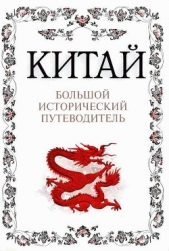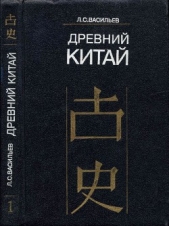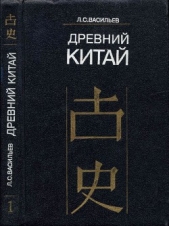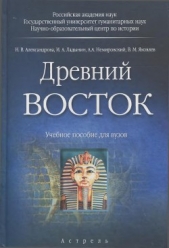Древний Китай. Том 3: Период Чжаньго (V—III вв. до н.э.)
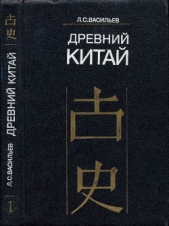
Древний Китай. Том 3: Период Чжаньго (V—III вв. до н.э.) читать книгу онлайн
Внимание! Книга может содержать контент только для совершеннолетних. Для несовершеннолетних чтение данного контента СТРОГО ЗАПРЕЩЕНО! Если в книге присутствует наличие пропаганды ЛГБТ и другого, запрещенного контента - просьба написать на почту [email protected] для удаления материала
Shang Yang, who for his great services was granted one of the very top ranks and a landed estate with a right to use revenues for his personal needs, could not abide "parasites". He filed under that heading the scholars of rival schools (mostly Confucians) and, first and foremost, the nouveaux riches (though he had no love for the old aristocrats either, stripping them of rewards and honors whenever they failed to exhibit military valor). The owner of private property is, by his very nature, an enemy of the state, since that which was once received — and which must be received — by the state goes to his pocket. Shang Yang suggested that all the rich must buy ranks for large sums of money, and no one refused such offers. Thus the buyer was losing his wealth, but obtained prestige, which was highly prized in the rank-divided society. Shang Yang strictly controlled the government apparatus and encouraged mutual spying and informing within it. Unlike Confucians, he was not of the opinion that the state machinery needed the intelligent and the capable. It really needed the mediocre, the assiduous, the law-abiding. According to Shang Yang, the people at large were just cattle — a view he never concealed. The basically true slogan, "The weaker the people, the stronger the state," was his favorite dictum. Shang Yang was extremely cynical, but to give him his due he worked expertly. Having taken the iron rod of power in his hands, he used it unceasingly, treating the people as submissive cattle, he proved capable of quickly transforming the backward state of Ch'in into a developed, well-ordered and wealthy kingdom whose military power was perhaps unrivaled in the Under-Heaven.
Philosophy of Taoism was one of the most intriguing trends in Ancient Chinese thought. It is important to keep in mind that, up to the late 4th and early 3rd centuries, China was not familiar with mythology, heroic epos, mysticism and metaphysics proper to religious doctrine, especially in the sphere of cos-mogonic constructs. As pointed out in Volumes I and II of this three-volume publication, all the main ideologemes, ceremonial rites and reforms were equally aimed at the same goal of creating in the Under-Heaven favorable conditions for achieving purely earthly, if sometimes very diverse, objectives. However, since the above-indicated point in time, many things begin to change. The Tso-chuan, a commentary on the Ch 'unch Чи chronicle, mentions the six primary elements, liu-fu (earth, water, fire, metal, wood, grain). In the Old Iranian Avesta, in the section dealing with Zoroaster's (fl. no later than the 7th century B.C.) reforms, we find a nearly identical group of six elements: earth, water, fire, metal, wood, cattle. In the semi-nomadic Iranian society, cattle was a really important substance, whereas in the Chou China it was practically absent. There are grounds to suspect that in the commentary in question cattle was replaced with grain; subsequently, the commentator reasoned logically that wood and grain represented a single substance and these two elements became supplanted with one — plants. Thus the Ancient Chinese thought acquired the notion of wu-hsing, the five proto-elements (the first five elements of the Iranian and Chou lists). The fact that these groups of five elements are completely identical is not accidental. Furthermore, this likeness goes much deeper, beyond the obvious. Zoroastrian dualism was based on the opposition of the forces of Good and Light to those of Evil and Darkness. The Tso-chuan also refers to yin and yang, and Ancient Chinese dictionaries clearly define them, respectively, as the northern, dark and the southern, bright sides of a mountain, not as metaphysical notions.
Chapter 74 of Ssu-ma Ch'ien's Shih Chi tells of the philosopher Tsou Yan (350–270 B.C.), who was noted for his profound speeches and unusual ideas that were highly esteemed by his contemporaries, especially rulers, who treated him with much greater respect than Confucius or Meng-tzu. Tsou Yan wrote many works that amounted to 100,000 characters and that have not survived. According to Ssu-ma Ch'ien, Tsou Yan "reached the very wellspring of life, when Heaven and Earth have not yet emerged and utter darkness reigned." Tsou Yan knew of "the overseas lands that men could not behold." He maintained that, "since the time when Heaven and Earth opened up and became divided, the five te virtues are in constant circulation…" and that Chungkuo, i.e., China, represented "only one eighty-first part of the Under-Heaven." But what mattered most was that Tsou Yan "thought deeply about the waxing and waning of the yang and у in forces, penetrated into the vicissitudes of all changes."
Here we have an extremely important text. For the first time, China produced a thinker who, contrary to the accepted norm and having no predecessors to lean upon, delved deeply into mysticism and created impressive metaphysi-cal-cosmogonic constructs. He has been to places that none of the Chinese has been to; he has seen that which none of them has seen. He spoke assuredly of the time when Heaven and Earth have not yet emerged and darkness prevailed; he stated that China was merely one eighty-first part of the Under-Heaven. Where Tsou Yan could have borrowed these ideas from? They were well known to Indian thinkers who wrote about the nine dvipa continents, each of which in turn consisted of nine parts. Tsou Yan discussed problems of cosmogony in earnest, though all earlier Chinese thinkers were completely indifferent to them. Besides, he spoke of the incessant circulation of certain "five te [substances]", which were obviously somehow related to the wu-hsing proto-elements. He also pondered over the rise and fall of the yang and yin forces, which corresponds so fully to the Iranian idea of the eternal struggle between the forces of Good and Evil, of Light and Darkness. The Tsou Yan phenomenon remains an enigma [304], just like many things associated with Taoist philosophy, starting with Chuang-tzu (369–286 B.C.).
We mean here the mysterious origin of those ideas, including mythology, which appears for the first time in Chinese writings (we refrain from discussing oral tradition, as it is hard to say something definite regarding it) and is widely represented in the Chuang-tzu. The book in question is one of the most interesting in the Ancient China. In addition to profound metaphysical constructs that are entirely foreign to any earlier Chinese text, it contains a huge number of parables, anecdotes, myths and short essays on abstract topics.
Chuang-tzu's metaphysics and cosmogony proceed from the assumption that the Universe was created out of the original Chaos and that its creation is related to the Great Tao (the Tao of Taoism, which differs from the Tao of Confucius) — a certain Supreme Absolute, extrinsic to the phenomenal world and undetectable by the senses. Те is an emanation of Tao [305]. Tao is everywhere and nowhere, it pervades everything and it lies at the bottom of the cosmogonic process. The ideas of Chuang-tzu — like those of Tsou Yan — are very unorthodox for Ancient Chinese thought. It is very hard to believe that they could have popped up out of the blue, in a country where no one took interest in such things before. Well, there is no need to believe that. One has but to pick up, for instance, an unassuming chrestomathy titled Ancient Indian Philosophy (Drev-neindiyskaya filosofiya, Moscow, 1972; in Russian) to find very similar in nature — though much more refined and elaborated — constructs of the Rigveda and Upanishads. They contain the same ideas: the Great Brahman-Absolute and its emanation Atman, the existent and non-existent, Chaos and the emergence of the One, the latter's association with thought (the Word, Logos), the original emptiness so favored by Chuang-tzu.
